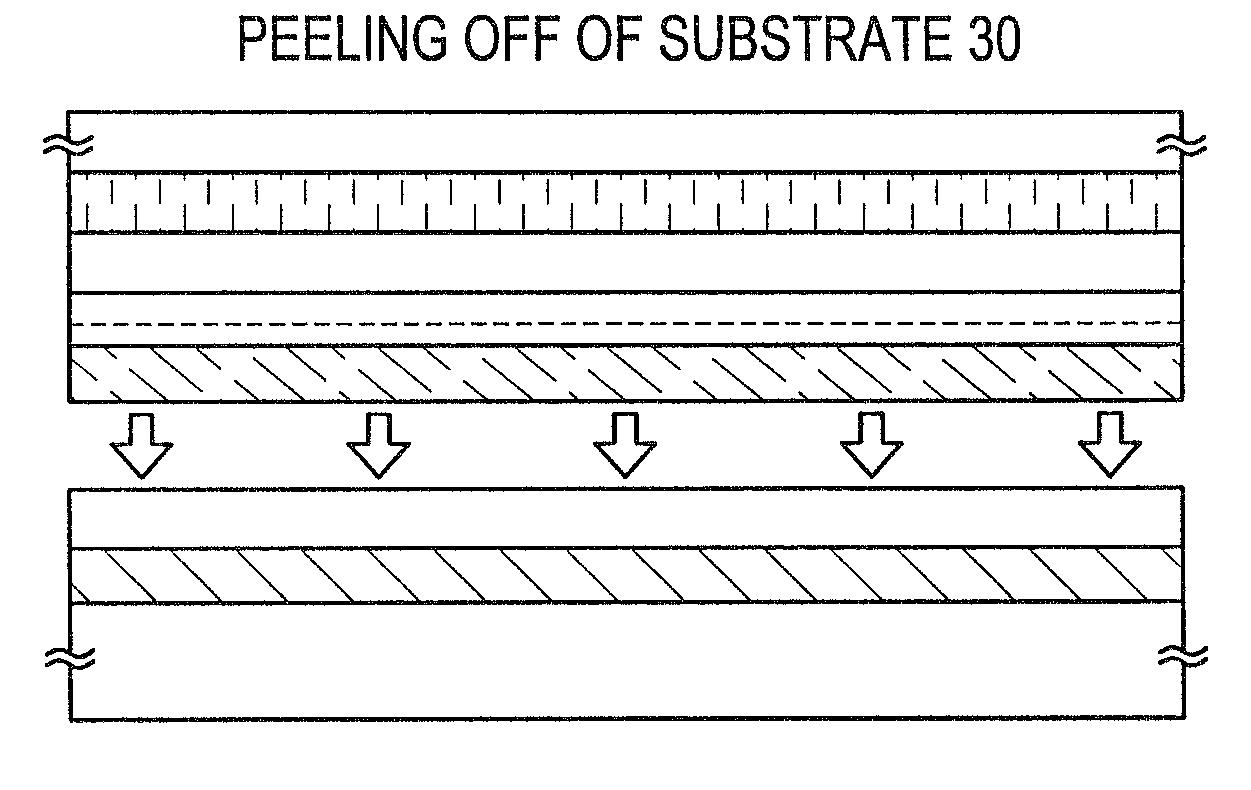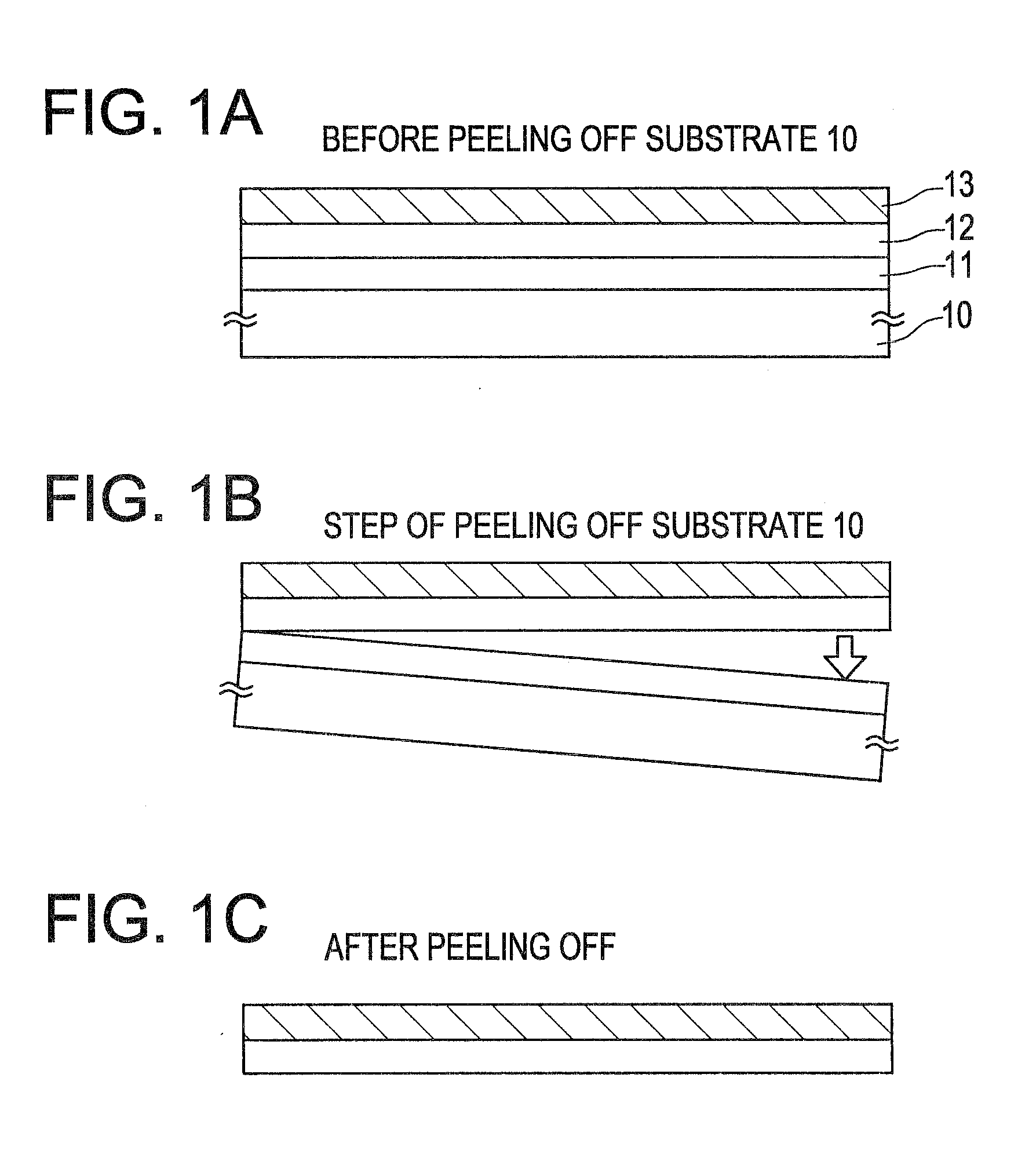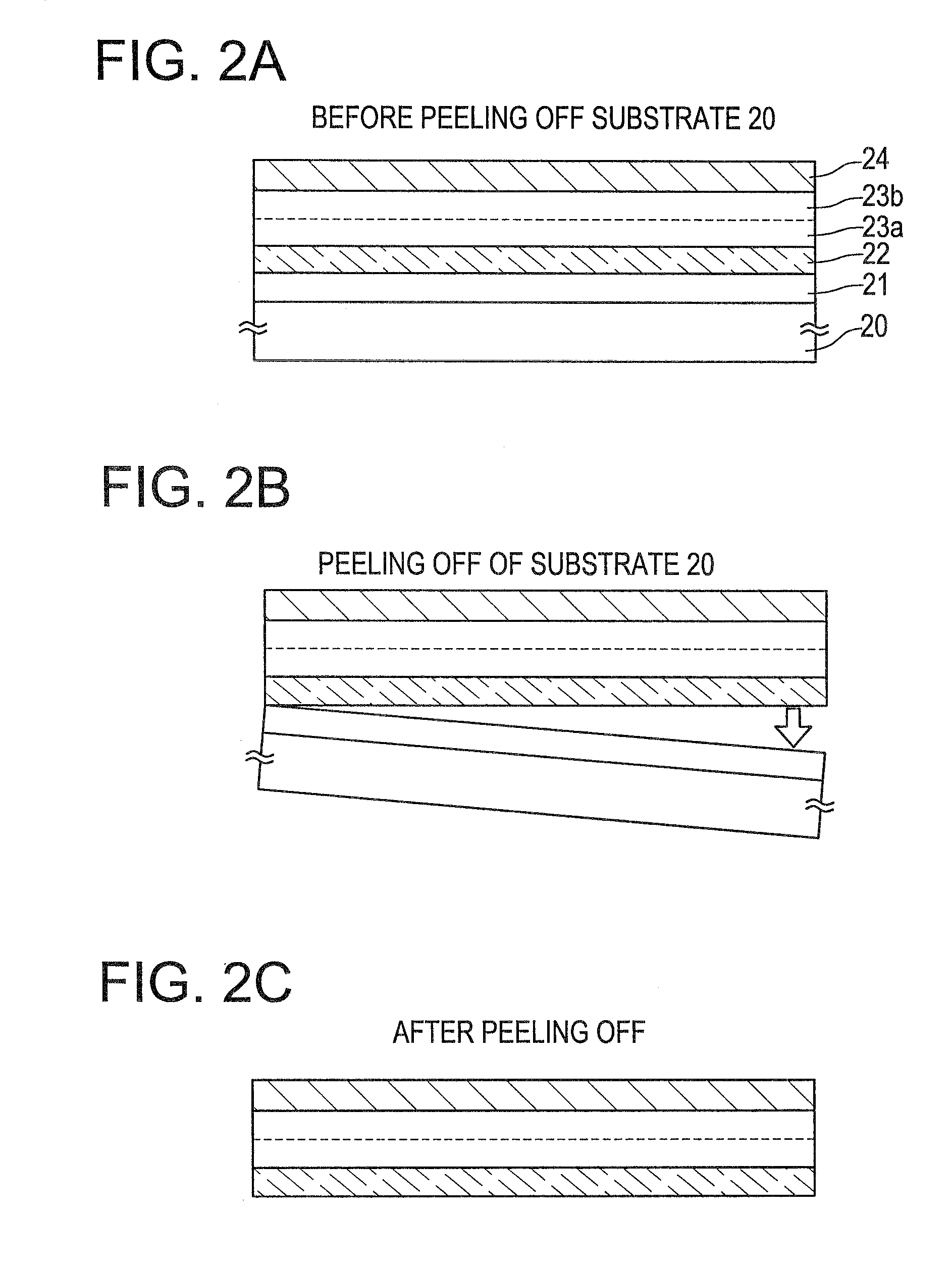Semiconductor device and peeling off method and method of manufacturing semiconductor device
a technology of semiconductor devices and semiconductors, applied in the direction of identification means, instruments, chemistry apparatuses and processes, etc., can solve the problems of easy cracking and heavy, glass substrates and quartz substrates are difficult to be made larger, and cannot help lowering the highest temperature of the process
- Summary
- Abstract
- Description
- Claims
- Application Information
AI Technical Summary
Benefits of technology
Problems solved by technology
Method used
Image
Examples
embodiment 1
[0098]Hereinafter, a representative peeling off procedure utilizing the present invention will be schematically shown with reference to FIG. 1.
[0099]In FIG. 1A, the reference numeral 10 denotes a substrate, the reference numeral 11 denotes a nitride layer or a metal layer, the reference numeral 12 denotes an oxide layer, and the reference numeral 13 denotes a peeled off layer.
[0100]In FIG. 1A, as for the substrate 10, a glass substrate, a quartz substrate, a ceramic substrate or the like can be used. Moreover, a silicon substrate, a metal substrate or a stainless substrate may also be used.
[0101]First, as shown in FIG. 1A, the nitride layer or metal layer 11 is formed on the substrate 10. As the nitride layer or metal layer 11, representative examples are as follows: an element selected from Ti, Al, Ta, W, Mo, Cu, Cr, Nd, Fe, Ni, Co, Zr, Zn, Ru, Rh, Pd, Os, Ir and Pt, or a monolayer consisted of alloy materials or compound materials whose principal components are the foregoing eleme...
embodiment 2
[0104]As for the present Embodiment, the peeling off procedure for peeling off the substrate while the impurities diffusion from the nitride layer or metal layer and the substrate is prevented by providing a primary coat insulating layer being in contact with the peeled off layer is schematically shown in FIG. 2. In FIG. 2 A, the reference numeral 20 denotes a substrate, the reference numeral 21 denotes a nitride layer or a metal layer, the reference numeral 22 denotes an oxide layer, the reference numerals and characters 23a and 23b denote primary coat insulating layers, and the reference numeral 24 denotes a peeled off layer.
[0105]In FIG. 2 A, as for the substrate 20, a glass substrate, a quartz substrate, a ceramic substrate or the like can be used. Moreover, a silicon substrate, a metal substrate or a stainless substrate may also be used.
[0106]First, as shown in FIG. 2 A, the nitride layer or metal layer 21 is formed on the substrate 20. As the nitride layer or metal layer 21, r...
embodiment 3
[0116]In the present embodiment, in addition to Embodiment 1, an example in which the irradiation of laser beam or the heat processing is performed in order to promote the peeling off is shown in FIG. 4.
[0117]In FIG. 4 A, the reference numeral 40 denotes a substrate, the reference numeral 41 denotes a nitride layer or a metal layer, the reference numeral 42 denotes an oxide layer and the reference numeral 43 denotes a peeled off layer.
[0118]Since the step of forming it until the peeled off layer 43 is made is the same with Embodiment 1, the description is omitted.
[0119]After the peeled off layer 43 was formed, the irradiation of laser beam is performed (FIG. 3 A). As a laser beam, a gas laser such as an excimer laser or the like, a solid state laser such as YVO4 laser, YAG laser or the like, and a semiconductor laser may be used. Moreover, the form of laser may be either of continuous oscillation or pulse oscillation, and the shape of the laser beam may be any of linear, rectangular...
PUM
| Property | Measurement | Unit |
|---|---|---|
| temperature | aaaaa | aaaaa |
| thickness | aaaaa | aaaaa |
| thickness | aaaaa | aaaaa |
Abstract
Description
Claims
Application Information
 Login to View More
Login to View More - R&D
- Intellectual Property
- Life Sciences
- Materials
- Tech Scout
- Unparalleled Data Quality
- Higher Quality Content
- 60% Fewer Hallucinations
Browse by: Latest US Patents, China's latest patents, Technical Efficacy Thesaurus, Application Domain, Technology Topic, Popular Technical Reports.
© 2025 PatSnap. All rights reserved.Legal|Privacy policy|Modern Slavery Act Transparency Statement|Sitemap|About US| Contact US: help@patsnap.com



